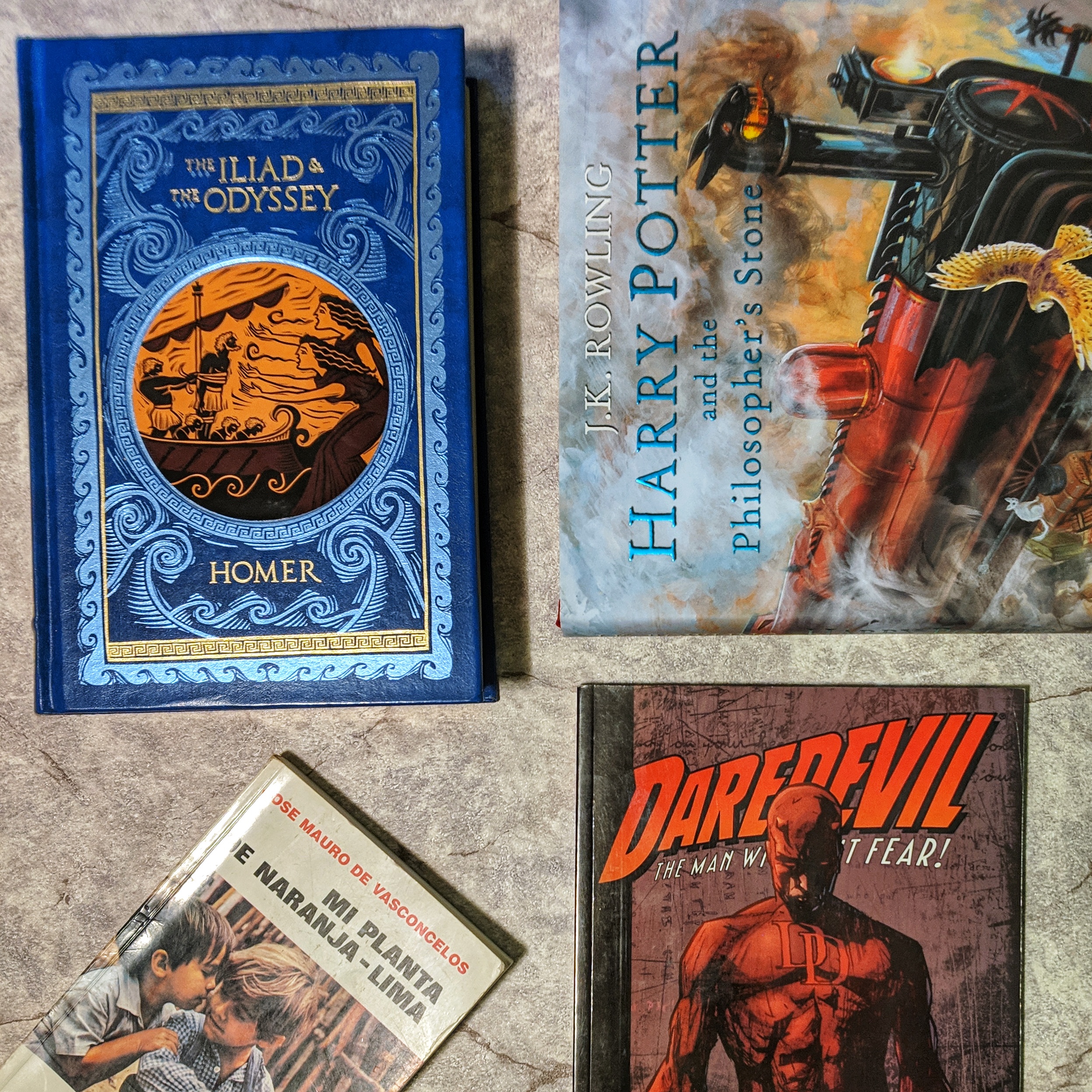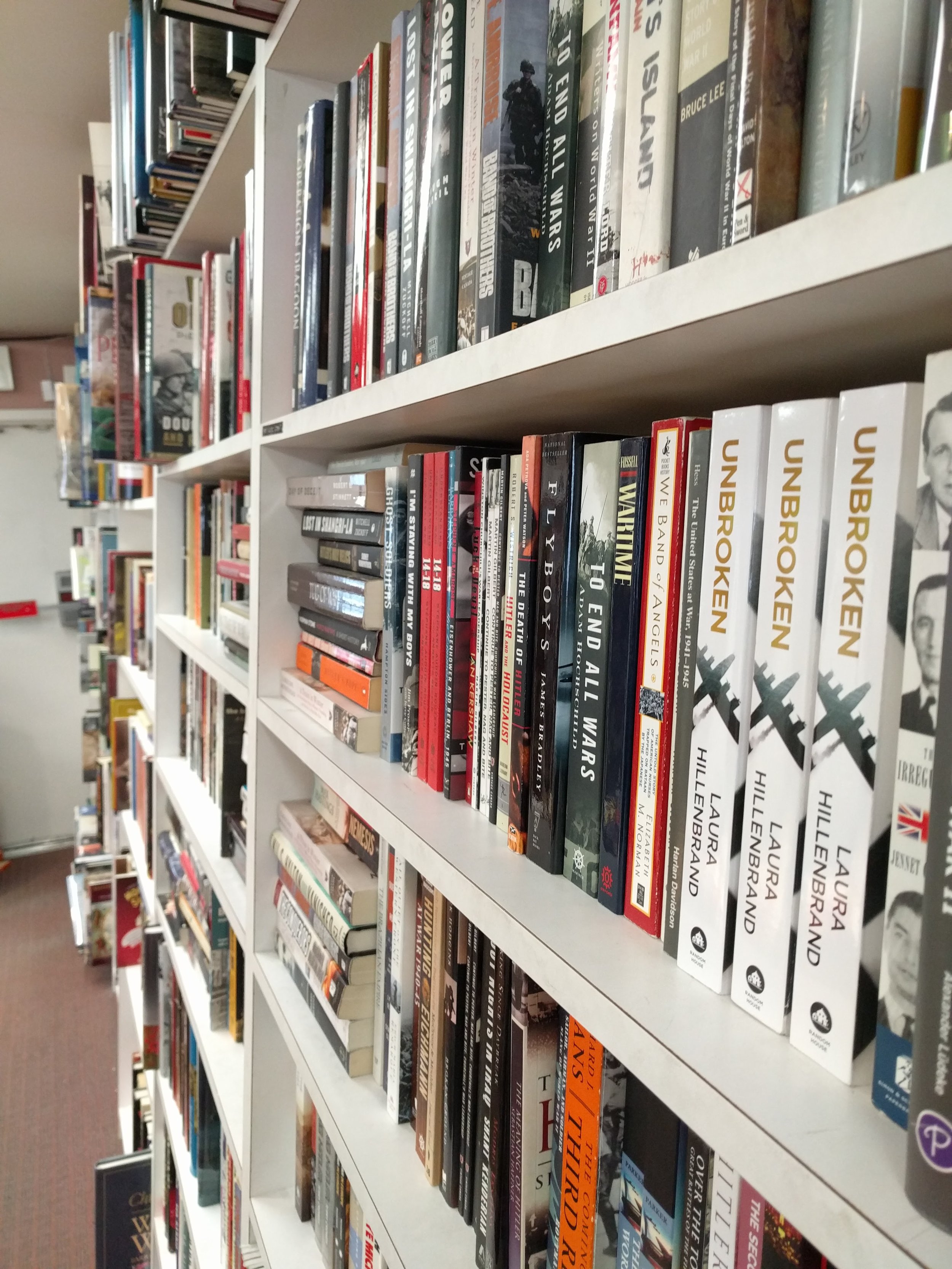From the bookstore to the silver screen

It’s Oscar’s night tonight and for some of us, that’s a pretty big deal.
I’m off tonight to a friend’s house to watch the ceremony but wanted to make sure I posted a little something this week. While the Academy Awards celebrate achievements in the art of film, many of the winners wouldn’t be there without the beauty that are books.
Here’s a highlight of some of the winners of the main award since the turn of the century—and what books they’re based off of:
12 Years a Slave ( Best Picture - 2014)
This period drama brought to the big screen by the masterful hand of Steve McQueen was adapted from the true memoir of the same name by Solomon Northup, a free man who was kidnapped and sold into slavery in 1841. As such, the original material reads like something that was written a century and a half ago but it is well worth the read. Per Wikipedia, Northup ends his work with the following words.
My narrative is at an end. I have no comments to make upon the subject of Slavery. Those who read this book may form their own opinions of the "peculiar institution." What it may be in other States, I do not profess to know; what it is in the region of Red River, is truly and faithfully delineated in these pages. This is no fiction, no exaggeration. If I have failed in anything, it has been in presenting to the reader too prominently the bright side of the picture. I doubt not hundreds have been as unfortunate as myself; that hundreds of free citizens have been kidnapped and sold into slavery, and are at this moment wearing out their lives on plantations in Texas and Louisiana. But I forbear. Chastened and subdued in spirit by the sufferings I have borne, and thankful to that good Being through whose mercy I have been restored to happiness and liberty, I hope henceforward to lead an upright though lowly life, and rest at last in the church yard where my father sleeps.
Truly powerful stuff!
Argo (Best Picture 2013)
Another movie based on a true story, Argo came to us by adapting two pieces of work: one was a 2007 Wired article by Joshua Bearman (Viva la journalism, tbh!) and the book by the CIA operative himself, Mr. Tony Mendez. The Master of Disguise : My Secret Life in the CIA is an autobiographical piece of work that details the skills of the trade Mr. Mendez developed while working on operations all over the world, including Tehrah, Iran—the operation that inspired the movie Argo.
It’s a great book if you want to get that inside look into the mysterious world of espionage.
Slumdog MIllionaire (Best Picture - 2009)
Vikas Swarup’s Q & A was published in 2005, four years before Danny Boyle would turn it into an Academy Award-winning film. The book itself was inspired by a report that Swarup saw that discussed how children in the local slums were using phones and the internet. Meanwhile back in the U.K. , Charles Ingram, an army man from the UK was found cheater in Who Wants to be a MIllionaire. Putting the two together was a genius stroke by Swarup who described the idea like follows: “If a British army major can be accused of cheating, than an ignorant tiffin boy from the world’s biggest slum can definitely be accused of cheating.” The book is broken into chapters that reveal the backstory between the protagonist knowing the answer to the show’s tiered questions. Q & A has received just a much praise as its movie counterpart has: it picked up a Boeke Prize in 2006 and went on to be nominated for Commonwealth Writer’s Prize and won the Prix Grand Public at the 2007 Paris Book Fair.
No Country for Old Men (Best Picture - 2008)
This novel by Cormac McCarthy tells the antagonistic relationship between Sheriff Ed Tom Bell, a vet looking into a series of murders; and Anton Chigurh the hitman with creepy eyes. The plot takes place near the US-Mexico border, a particular political hotspot these days, and it involves a drug deal that goes as wrong as it can. It’s a pretty easy read as the writing style is a little more straight forward than your average McCarthy novel. This being, allegedly, due to it being intended to be written as a screenplay. The title of the novel comes from a different literary body of work: the 1026 poem Sailing to Byzantium by W.B. Yeats, the Irish poet.
Million Dollar Baby (Best Picture - 2005)
You can tell the boxing vibe of this movie is authentic from the moment the movie starts and that’s no coincidence. It was based on Rope Burns: Stories from the Corner by F.X. Toole, the pen name of boxing trainer Jerry Boyd. The book was dedicated to the memory of Dub Huntley, the pushing force behind Jerry Boyd’s interest in boxing. Huntley trained Boyd when he was in his 40’s—a challenge for the coach, not unlike the one taken on by Clint Eastwood’s character. Boyd went on to be the assistant trainer to Juli Crockett, the female professional boxer that served as inspiration for Hillary Swank’s Maggie Fitzgerald.
The Lord of the Rings: The Return of the King (Best Picture - 2004)
Disclaimer. I’ve never read The Lord of the Rings. I’ve tried. Many times. But I blame it on trying to read it too early on. I was so interested in throwing myself into the work of J.R.R. Tolkien as a child but it overpowered me and I struggled to finish it after that. However it’s hard to even imagine a world in which us book fans get to enjoy the Harry Potter universe, or any other of the beautiful rich YA world if it wasn’t for the fundamental work by Tolkien. No one can create a detailed universe like this man.
A Beautiful Mind (Best Picture - 2002)
This biography of Nobel Prize-winning economist and mathematician John Forbes Nash, Jr by Sivlia Nasar, was the inspiration behind the film. It covers Nash’s life including his years at Princeton and MIT, as well as the incredibly difficult struggle he dealt with: schizophrenia. Unlike the movie, the book takes a closer look at Nash’s sexuality. While the mathematician doesn’t consider himself a homosexual, he was involved in some incidents that led to firings and revoking his security clearance. It’s not without it’s controversy, however, as the unauthorized biography was challenged for being made without the cooperation of the subject. Not withstanding, it went on to win a National Book Critics Circle Award and was a finalist for the Pulitzer Price.
And that’s a brief look at the some of the amazing books that lead to some true film winners. Have you ready of these? What are some of your favourite movies based on books? Let me know in the comments :)
Bookie! NOM NOM NOM









